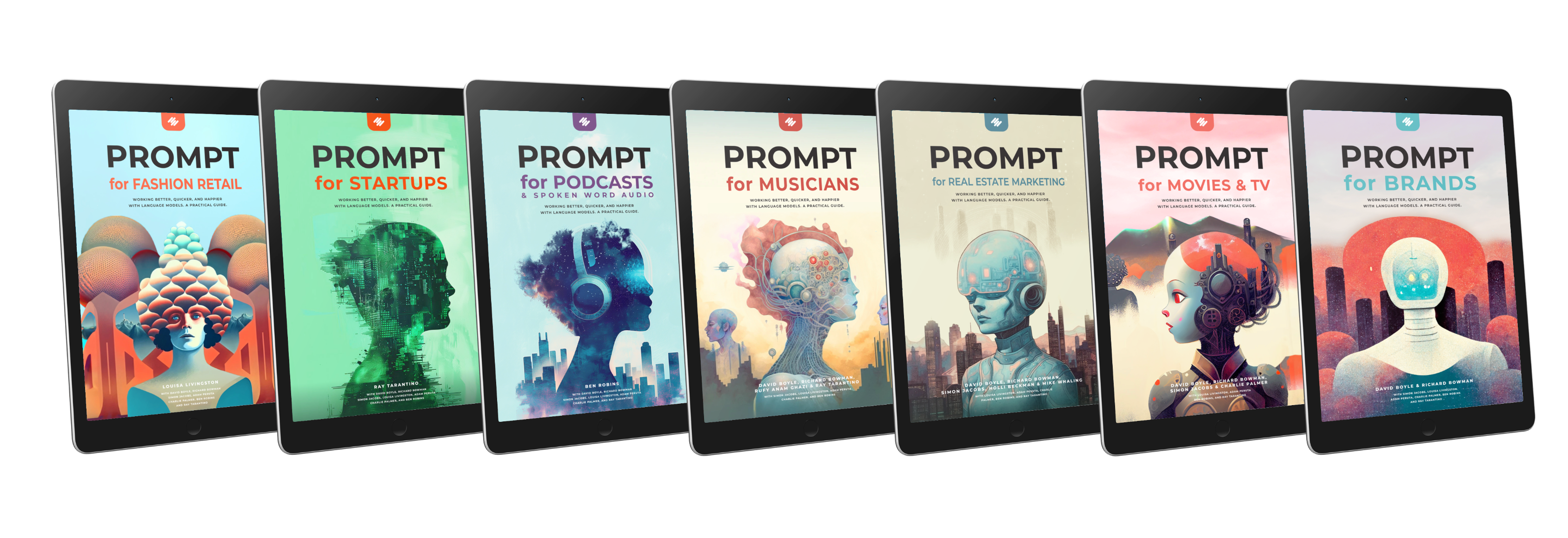As organizations race to harness the transformative potential of language models like ChatGPT, a new working paper from Harvard Business School and partners offers valuable insights into common challenges and best practices. The study, titled "Don't Expect Juniors to Teach Senior Professionals to Use Generative AI," highlights the risks of relying solely on junior staff to drive adoption and the importance of a strategic, organization-wide approach.
At PROMPT, these findings resonate deeply with our philosophy and the lessons we've learned from working with dozens of companies to integrate language models effectively. The PROMPT Mindset, which lies at the heart of our books, training, and consulting, is all about avoiding the pitfalls identified in the paper and charting a course to sustainable success.
One of the key takeaways from the study is that while junior professionals may be more comfortable experimenting with language models, they often lack the deep understanding and strategic perspective needed to guide senior decision-makers. The authors found that juniors tended to recommend "novice AI risk mitigation tactics" that were grounded in a shallow grasp of the technology's capabilities, focused on surface-level changes to routines rather than system design, and prioritized project-level interventions over organization- or ecosystem-wide solutions.
This aligns with a core tenet of the PROMPT Mindset: true language model mastery is about skills, not tech. It's not enough to be proficient with prompts; leaders need to cultivate a strategic understanding of where and how these tools can drive real business value. Our 4 P's framework - Preparation, Prompting, Process, Proficiency - provides a roadmap for developing this holistic competency.
Another insight from the paper is that the biggest barriers to senior adoption may not be status threat, as often assumed, but rather perceived risks to valued outcomes like accuracy, explainability, and contextual relevance. Juniors, in their enthusiasm, may underestimate these concerns or propose band-aid fixes rather than systemic safeguards
At PROMPT, we've seen firsthand how important it is to proactively address these risk factors head-on. That's why our training emphasizes the "trust but verify" approach, equipping teams with strategies for fact-checking outputs, pressure-testing reasoning, and keeping humans firmly in the loop. We also stress the importance of defining clear use cases and guardrails upfront, so experimentation is bounded by business priorities.
Perhaps most crucially, the study underscores that successfully deploying language models is a team sport. It requires buy-in and skill-building at all levels, from the C-suite to the front lines. Relying on a handful of junior champions is a recipe for isolated pockets of value at best, and inconsistent or irresponsible use at worst.
This is where the PROMPT Mindset really shines. By framing language models as an "electric bike for the mind" - a powerful multiplier that still requires human steering - we help organizations approach adoption as a collective journey of learning and iteration. Our workshops and resources are designed to meet teams where they are and equip them with the technical and strategic acumen to collaborate effectively with AI.
Ultimately, the lesson from both the paper and our experience is clear: deploying language models is not a task to be delegated, but a transformation to be stewarded. It demands a thoughtful, multi-pronged approach that blends hands-on skills with high-level vision. And it requires empowering everyone, from juniors to seniors, to wield these tools with confidence and care.
At PROMPT, we're committed to being your partner and guide on this journey. Armed with the PROMPT Mindset and the lessons from cutting-edge research, you'll be well-positioned to sidestep the pitfalls and unlock the full potential of language models in your organization. The future of AI-augmented work is bright - and with the right mindset, it's yours to shape.
